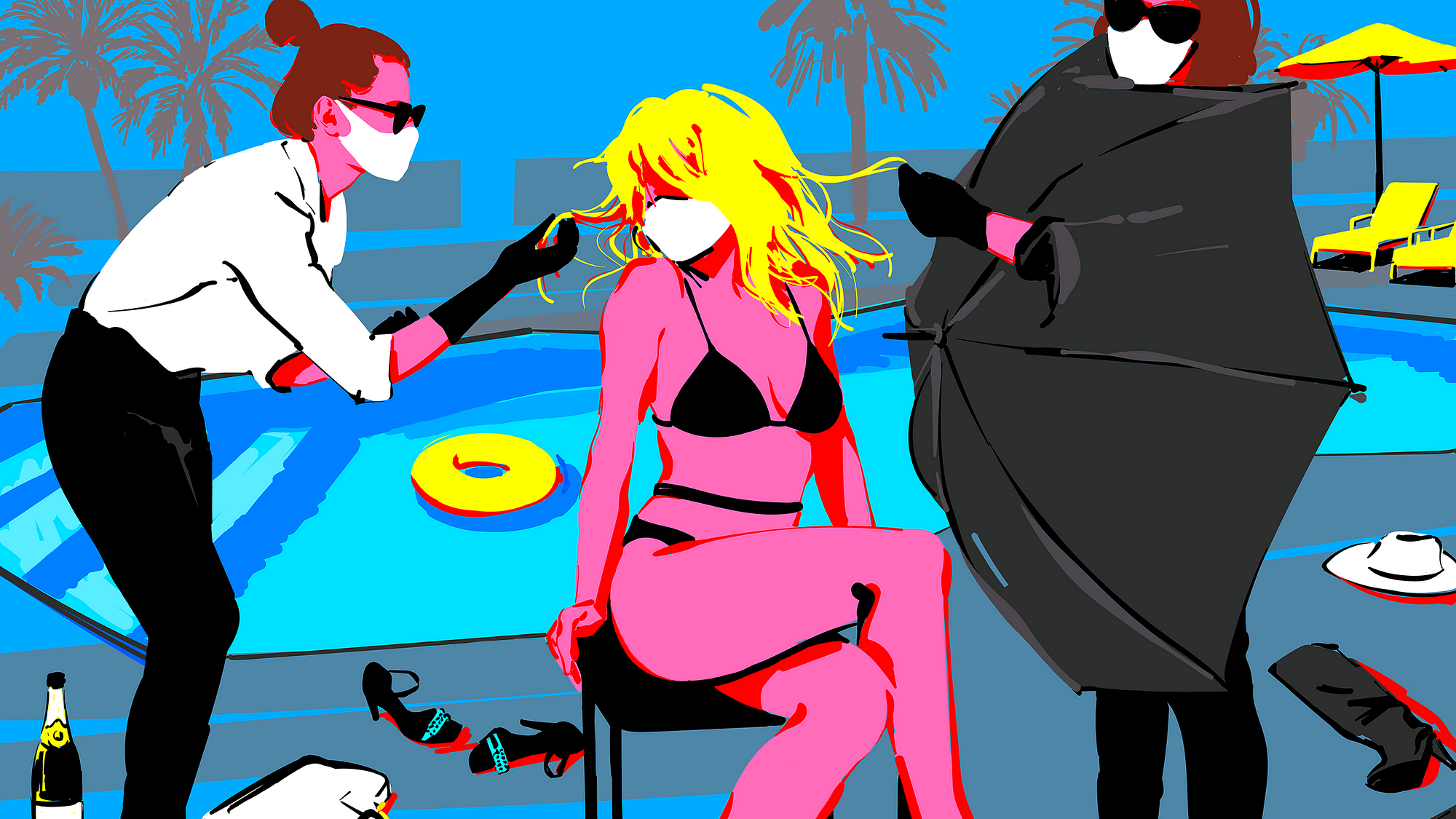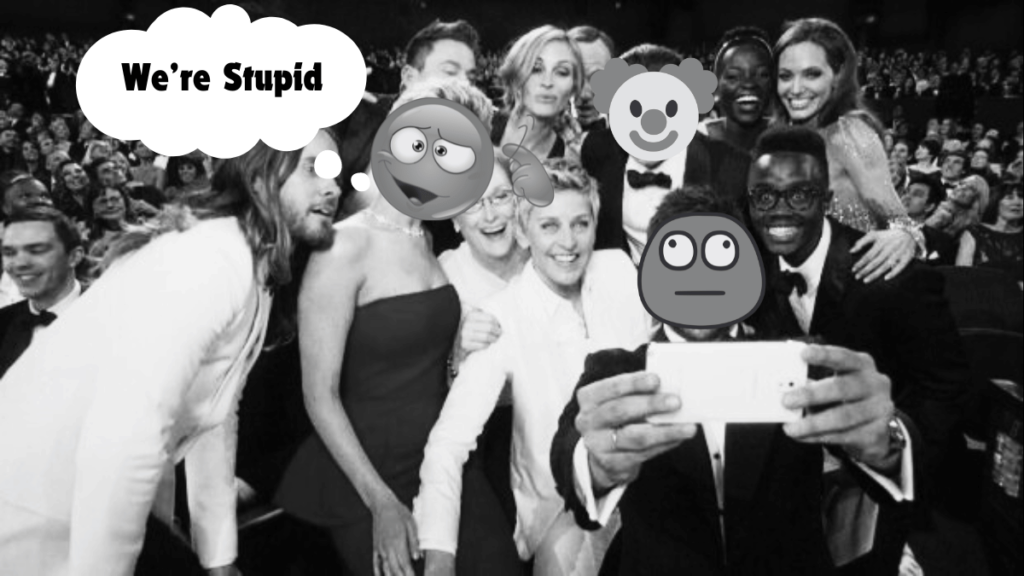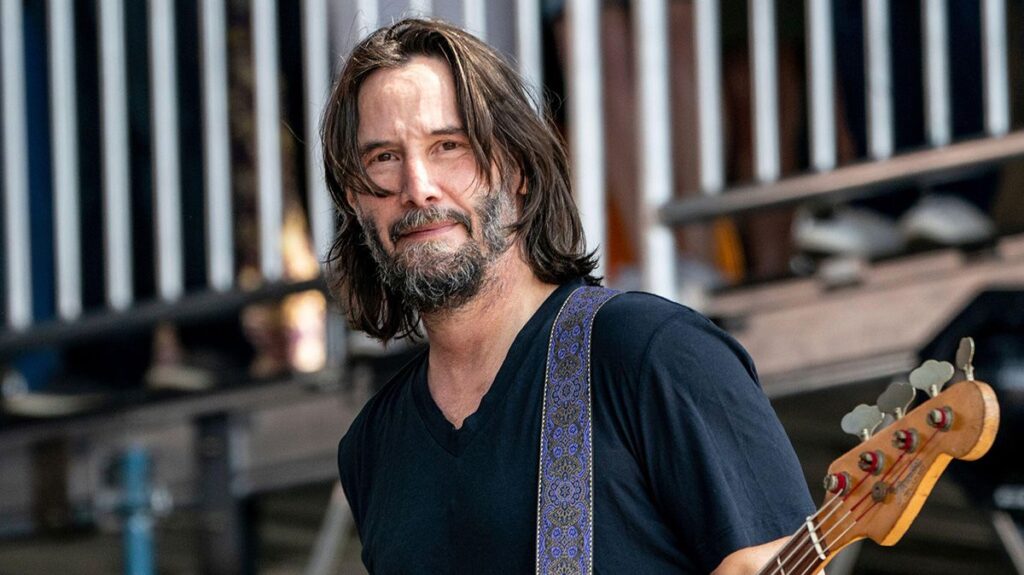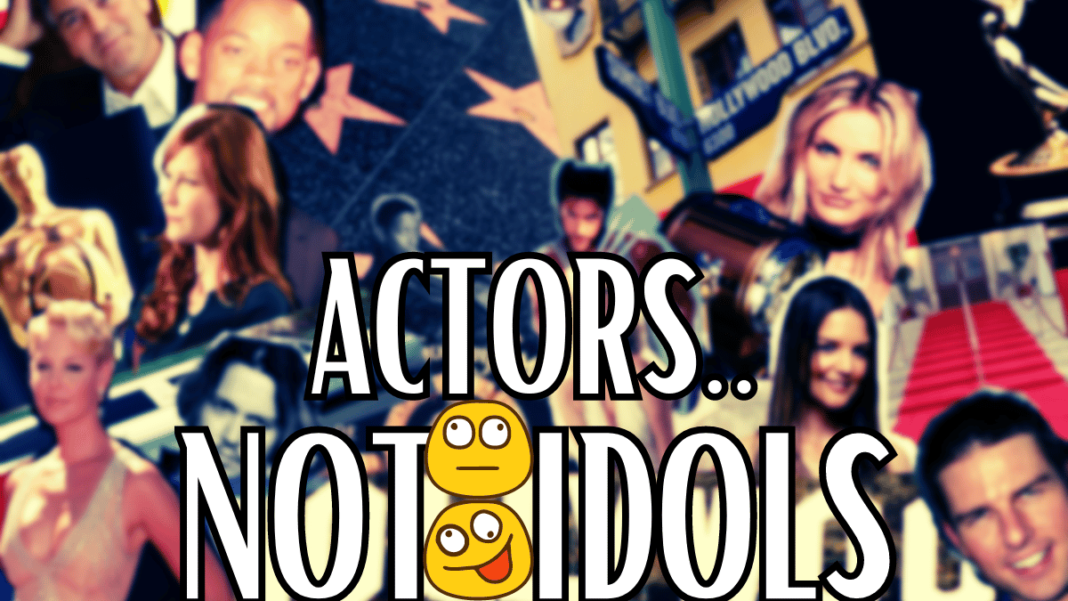It might be hard to believe now, but there was a time when movie stars were practically venerated as demigods amongst men. People genuinely looked up to and respected them as the living embodiments of the American dream—glamorous, refined, larger than life, but kind of remote and untouchable. They existed in a world separate from our own, serving as something inspirational for the common man to aspire to but never quite reach.
Today’s Sad Reality
Today, however, those same movie stars have become the punchline of a sad, dated, and unfunny joke. Fuel for a thousand memes on the internet, they are mocked and belittled for their clumsy attempts to preach, pander, and curry favor with the very people they look down upon with such contempt. Their flaws, shortcomings, and insecurities are increasingly exposed for the world to see.
Clowns of Modern Celebrity
Take, for example, clowns like Seth Rogen, pretending to be articulate and well-informed political activists, only to lose his mind anytime someone points out how ludicrous and out of touch he is. Or consider Madonna, sitting in her bath of milk and rose petals, trying to explain how she’s no different from a minimum wage factory worker who has to make the daily choice between heating their home or having food to eat. Then there’s Ron Perlman, ranting and raving into his phone about some political bill he clearly has no knowledge or understanding of, and Gal Gadot leading a bunch of celebrities in an off-key rendition of “Imagine” at a time when most people were questioning whether they’d even have a home to live in the next month. Or JK Rowling, somehow managing to alienate practically everyone by going to war with the very people she spent years pandering to, and Will Smith losing his mind because he can’t take a joke.
The Cult of Celebrity: Dying on Its Arse

I could probably go on for days, reeling off examples of celebrities embarrassing themselves in front of millions of people. And that’s not even counting the really dark and sinister stuff lurking out there. The point is, the whole cult of celebrity that used to be such a big, powerful part of our culture really feels like it’s dying on its arse these days. And to be honest, it was kind of inevitable that this was going to happen sooner or later. The world we live in is changing, and so is the way we see the rich and famous.
The Instrument of Their Downfall: Social Media
If I had to describe the instrument of their downfall in two words, they would be “social media.” Back in the 90s and even the 2000s, celebrities were a lot less accessible than they are today. Generally, the only time you heard from them was in carefully scripted interviews with magazines, friendly journalists, and talk show appearances where they were contractually protected from difficult or uncomfortable questions. Don’t get me wrong, there was still plenty of potential for screw-ups, like Sean Connery given his decidedly old-school opinions on violence against women, Marlon Brando refusing his Oscar to make a statement about how Native Americans are treated in the industry, or Oliver Reed showing up to talk shows drunk out of his mind. These things were generally outliers rather than part of the broader culture in Hollywood, and for the most part, they were usually criticized as crass or inappropriate.
The Great Wall of Hollywood
Generally speaking, most celebrities sober enough to know what year it was were able to stick to the script, answering puffball questions about their careers, promoting whatever films they were in, and mostly steering clear of anything particularly political or controversial. On the rare occasions when they did get involved in such matters, you knew they meant business because it could have serious repercussions for their careers.
Welcome to the Age of Over-Sharing

Nowadays, it’s practically the opposite. You’re more likely to get criticized for not being political. The point is, there was a kind of protective wall between celebrities and the public, so that you never really knew the inner workings of their minds. You had no clue what they got up to on a daily basis or the mundane stuff that went on behind closed doors. You didn’t know what their opinions were on current political and social events, and you generally didn’t see them go off script.
Twitter: The Great Equalizer
Then, an innocuous little app like Twitter came along, and suddenly, celebrities had the ability to interact directly with their fans from the comfort of their own homes. They could put out unscripted, unrehearsed, unfiltered opinions and enjoy that sweet dopamine hit as thousands of likes and retweets came pouring in. “Holy [ __ ],” they thought to themselves as they sipped their soy lattes, “I can just sit here on my phone and bask in the glow of my own fame while my legions of fans shower my every word with praise and adoration. No more boring press junkets, scripted interviews, and tedious questions for me. Now I can talk about whatever the [ __ ] I want.”
The Lure of Instant Gratification
Like a moth to a flame, the allure of instant gratification, constant attention, and on-demand ego stroking was just too strong for most of them to resist. Before you knew it, these people were giving their opinions on everything, from social issues to foreign policy to the economy, in a never-ending quest to hog the public’s attention and bag themselves more hollow praise. They were sharing pictures of their homes, their meals, their dogs, and posing without stylists and makeup in an effort to look relatable. Lovely stuff indeed.
The Real Problem: They’re Idiots

The only problem is that most of these people are complete [ __ ] idiots. They’re hollow, narcissistic, poorly educated, privileged, disconnected, impulsive, weak-minded, ignorant, and completely unqualified to give their opinions on most of the things they speak so loudly about. They’ve made their careers out of saying words written by other people. They’ve spent years surrounded by well-paid yes-men who never challenge their opinions or call them out on their [ __ ], so most of them have never had to be particularly smart or well-informed. People just kind of go along with what they say, creating the false impression that their words must be correct. They’ve been safely protected within the Hollywood echo chamber, so when they decide to share their opinions with the rest of the world, it never really crosses their minds that they might be completely [ __ ] stupid.
The Internet: The Great Leveler
People say stupid things on the internet every minute of every day. The difference, though, is that the average person doesn’t have a public persona to protect, millions of people paying attention to what they say, and news media hungry for scandal keeping tabs on their every move. Truly, familiarity breeds contempt. The more we see of these people, the less we like them. The more we pull back the curtain on the world of celebrity, the more we realize there isn’t anything particularly smart, interesting, or special behind it. The mystique has vanished, along with the misplaced belief in the power of fame.
The New Breed of Celebrities

The age of the internet has also given birth to a new breed of celebrities who don’t need to be part of the Hollywood machine or have an army of publicists, stylists, and advisors to reach their audience. All they really need is a webcam and an internet connection. Funnily enough, people respond better to unpolished passion than slick, soulless corporate pandering. Just ask G4 TV. If some drunken [ __ ] from Scotland can find a bit of success online, then basically anyone can do it.
The Talent Pool: Diluted and Threatened
And that’s kind of my point. The fact that almost anyone can find a degree of fame and success now has diluted the talent pool and made traditional celebrities less special. The natural result of that is they start to feel threatened, and their clumsy attempts to appeal to that same desire for authenticity only expose how fake and shallow they really are.
Not All Celebrities Are Clowns
It would be unfair to say every celebrity is like this. Clearly, there are still good people who have managed to stay humble, grounded, and grateful for what they have, resisting the darker impulses of ego and attention-seeking. Some artists genuinely care about their craft and have no real interest in the public attention that comes with it. Some have even used their fame and wealth to support good causes or raise awareness about important issues, in which case, good on them.
Authenticity Still Matters

But most of the time, it’s pretty easy to tell the difference between an actor who quietly donates his salary to a charitable cause without expecting anything in return and a fame-hungry loudmouth spouting hollow political talking points on social media because they think that’s what people want to hear. People have got an eye for fakery now, and they don’t like it.
The Post-Celebrity World
The end result of all these factors is that we’re transitioning into a post-celebrity world, where being famous just isn’t that special or unique anymore. Normal, everyday people can have their ideas go viral overnight with a single well-written tweet. Being a big deal in Hollywood doesn’t make you a big deal to the average person anymore.
Entertainers, Not Leaders
There will always be a place for actors, entertainers, and performers of all kinds. There’s nothing wrong with being fans of their work. But their work is what should matter, not all the stupid [ __ ] that’s been tacked onto it. Fundamentally, they’re entertainers—not pundits, philosophers, leaders, or thinkers. Their job is to amuse and distract us, not to lecture, berate, and guilt us into thinking like they do.
The Golden Age of Hollywood
- https://en.wikipedia.org/wiki/Classical_Hollywood_cinema explores the era of Hollywood from the 1920s to the 1950s, known for its studio system and iconic stars
The Mystique of Celebrity
- https://academic.oup.com/mnras/article-abstract/527/4/10975/7492280 (scholarly article) discusses the concept of celebrity and its cultural impact
Social Media and the Celebrity Landscape
- https://uel.ac.uk/undergraduate/courses/ba-hons-social-media explores how social media has changed the way we view and interact with celebrities
The Rise of Reality TV
- https://en.wikipedia.org/wiki/Reality_television provides a history and analysis of the reality television genre
The Cult of Personality
- https://www.britannica.com/topic/cult-of-personality describes the concept of a cult of personality, where a leader is idolized and their flaws are overlooked
The Age of Authenticity
- https://areomagazine.com/2019/02/28/post-truth-in-an-age-of-authenticity/ discusses the growing consumer preference for authenticity and transparency in advertising and branding
The Democratization of Fame
- https://en.wikipedia.org/wiki/Citizen_journalism explains the concept of citizen journalism, where everyday people create and share news content
The Future of Celebrity
- https://www.bbc.co.uk/news/topics/cm6prww56w2t explores different perspectives on how technology and social media will continue to impact fame


